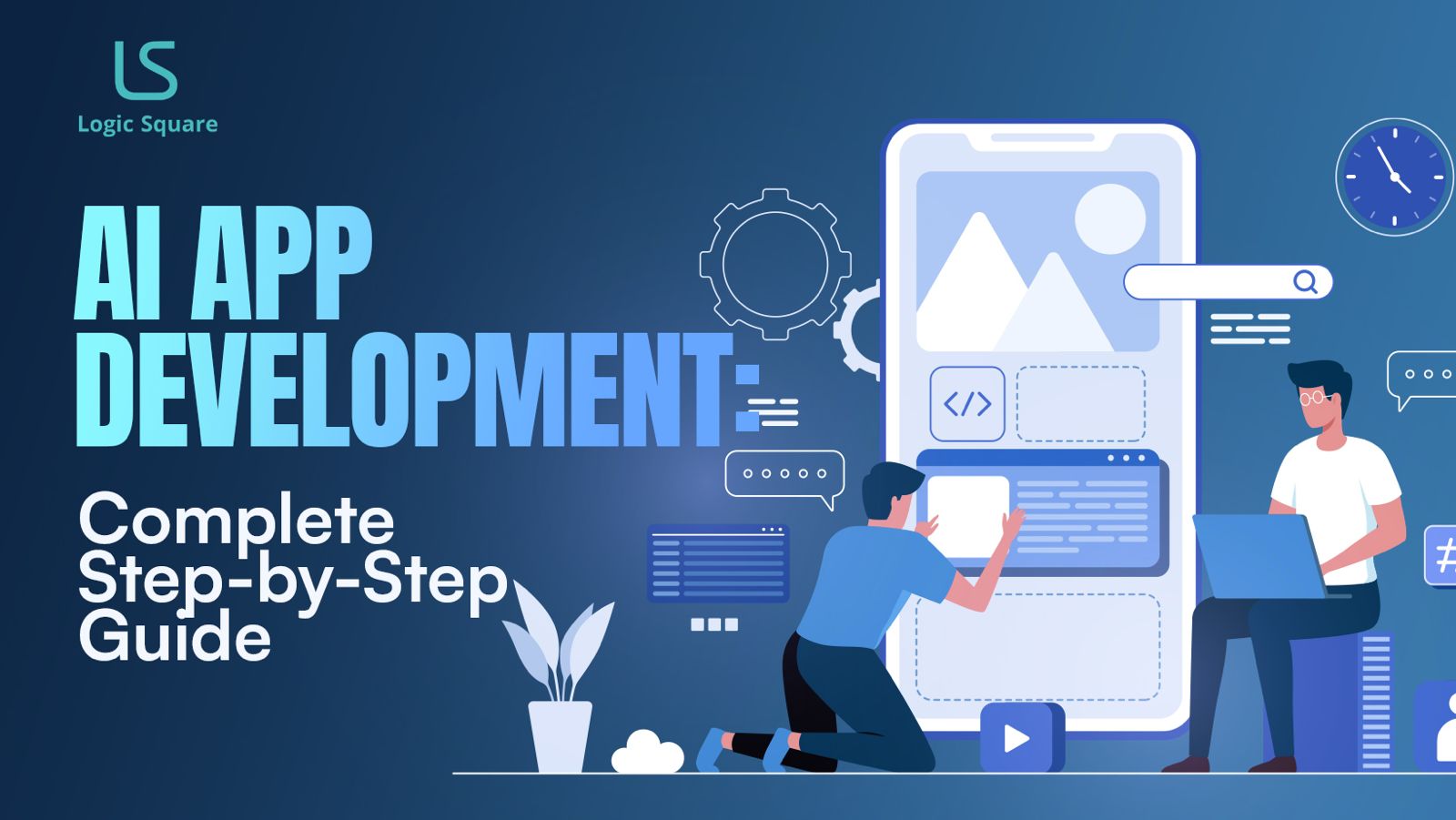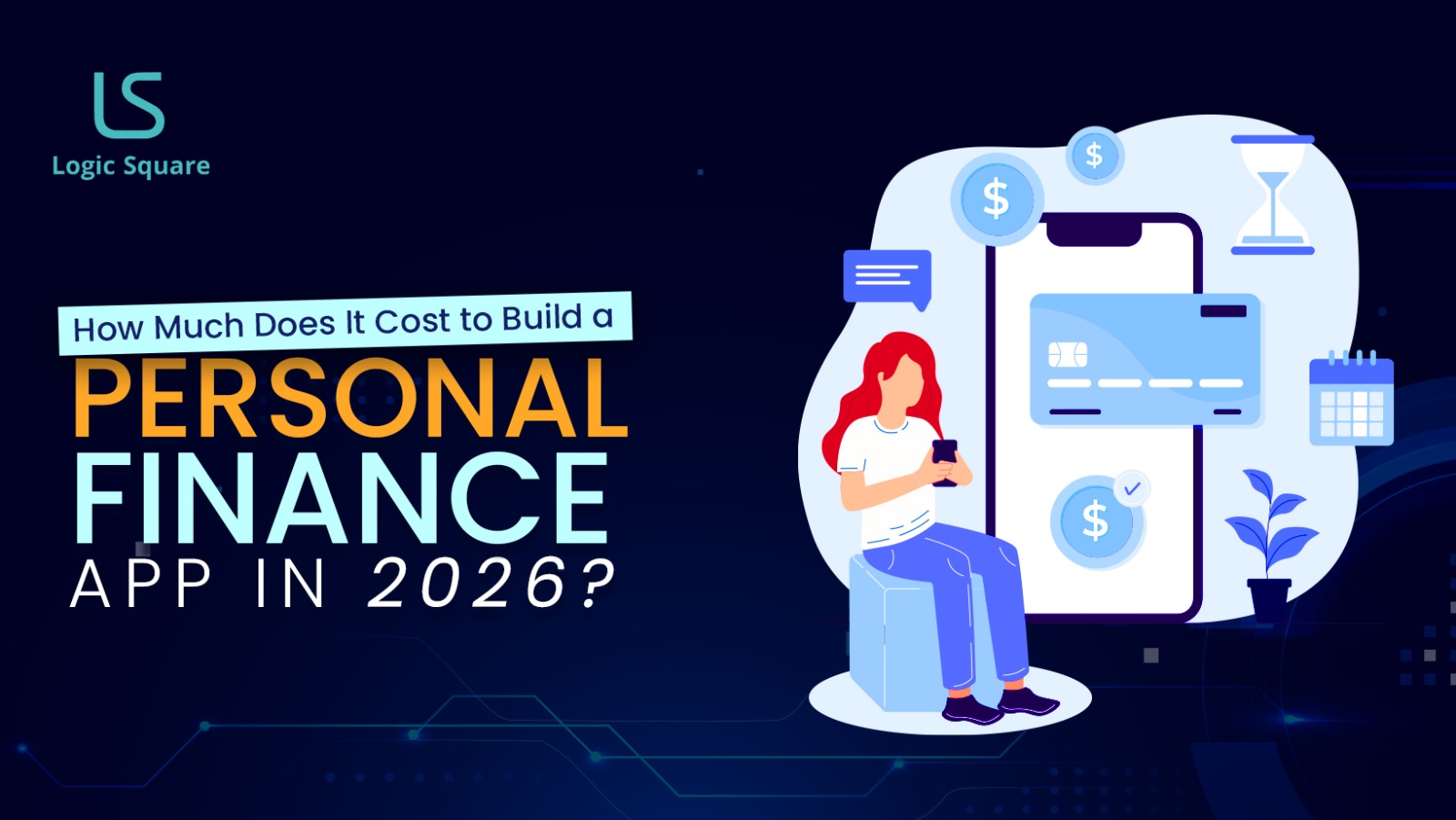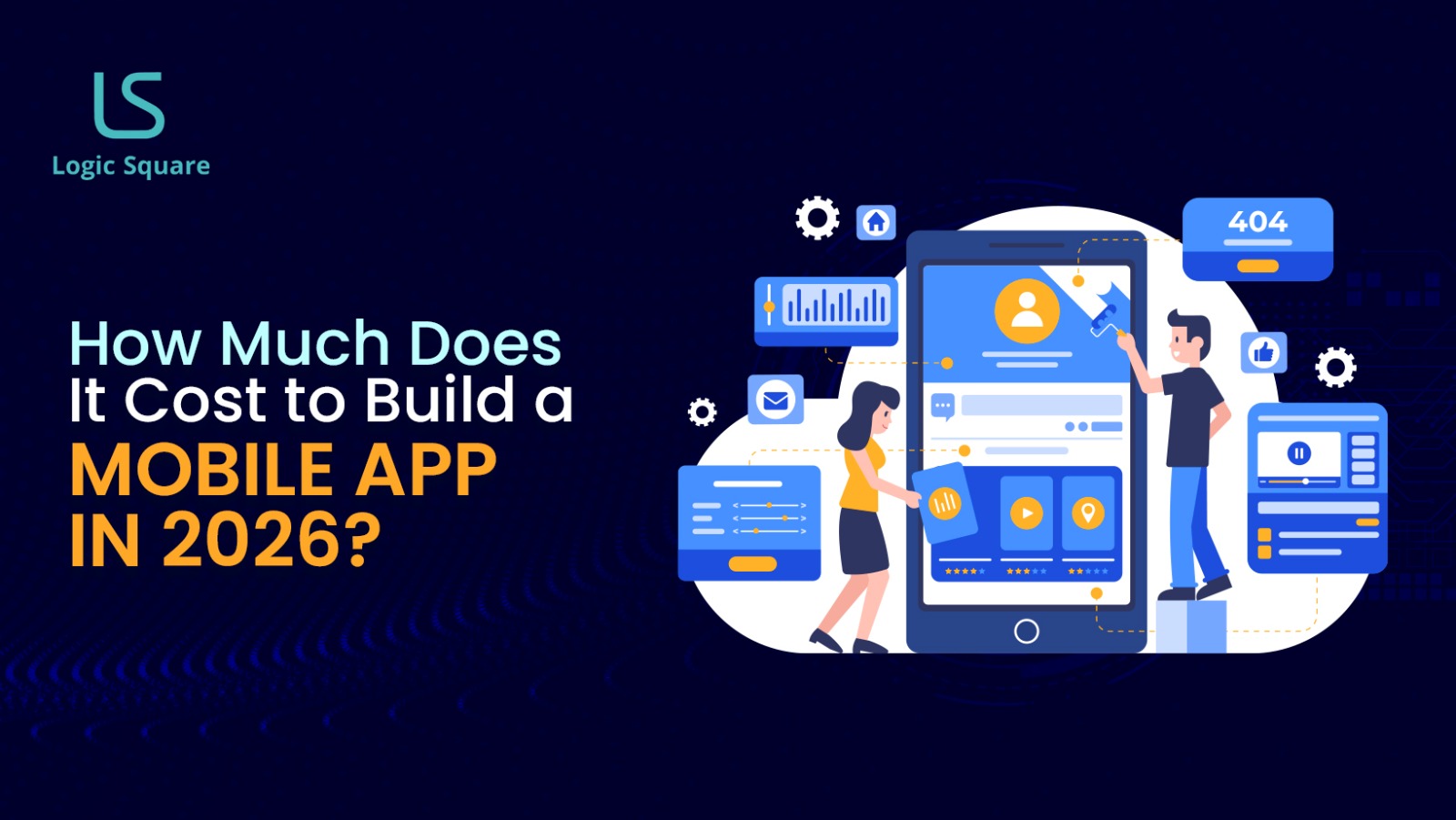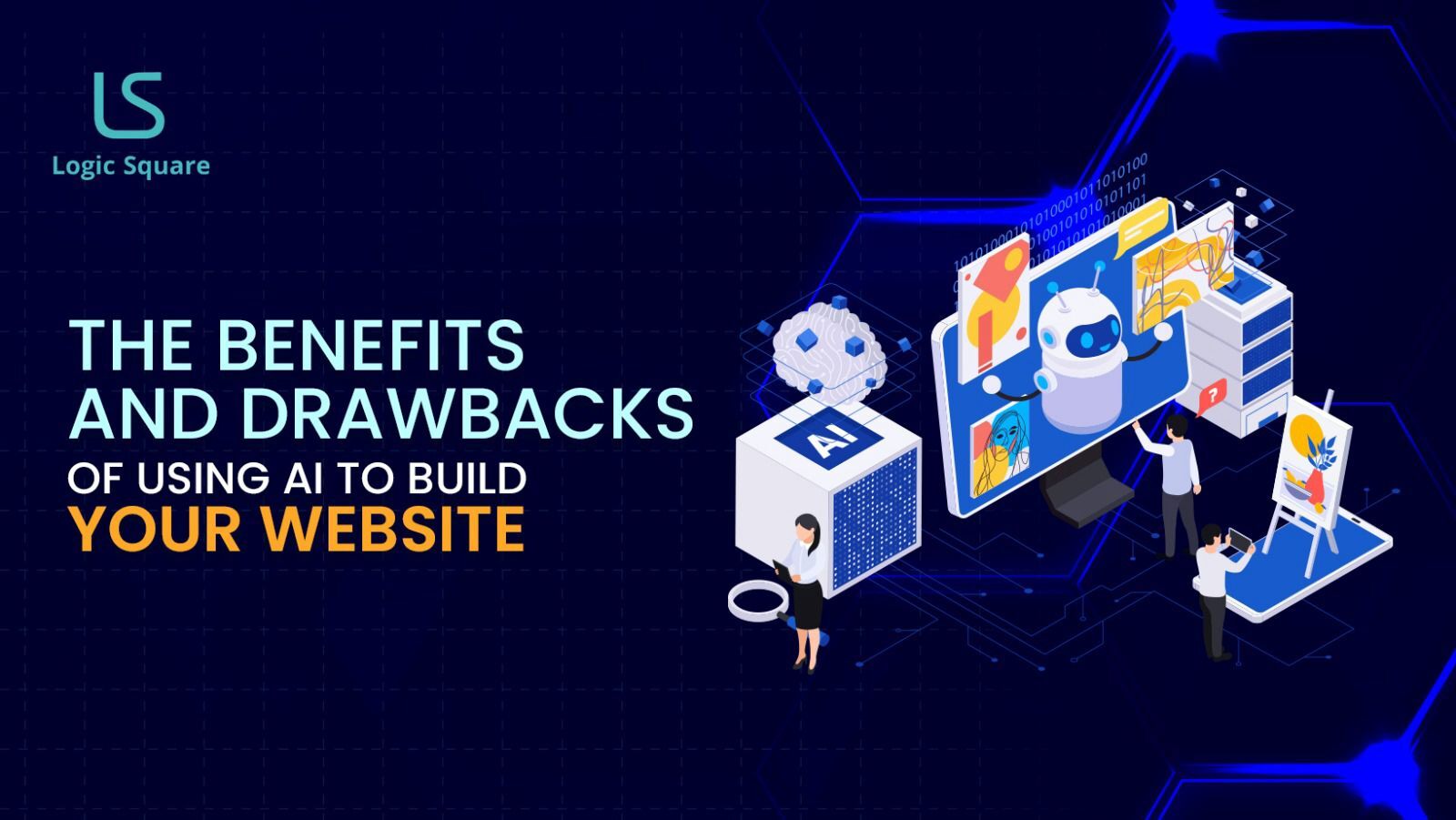Artificial Intelligence (AI) is no longer a future concept; it’s the foundation of today’s most innovative applications. From intelligent automation in logistics to predictive analytics in healthcare, AI is transforming industries, driving efficiency, and enabling smarter decision-making.
Yet, building an AI-powered app can feel complex and overwhelming. That’s why this comprehensive, step-by-step guide is designed to simplify the AI app development process, whether you’re a startup, enterprise, or product manager exploring AI for the first time.
Table of Contents
ToggleAs your AI innovation partner, LogicSquare Technologies helps you turn ideas into scalable, secure, and ethical AI solutions that deliver real business impact.
1. Define a Clear Use Case for Your AI App
Every successful AI project starts with a well-defined use case. Rather than building AI for the sake of novelty, identify a specific, high-value problem.
Example Use Case: Develop an AI chatbot for customer service to reduce response times and enhance user satisfaction.
Key actions:
- Identify a real-world problem that AI can solve.
- Set measurable goals (e.g., reduce support costs by 40%, improve response accuracy).
- Start with a Minimum Viable Product (MVP) to test functionality and user feedback.
This clarity ensures your AI application meets real business needs and provides a foundation for expansion.
2. Conduct Market Research and Feasibility Analysis
Understanding your target audience and market landscape is critical in AI app development.
Steps to take:
- Analyze your competitors and existing AI solutions in your domain.
- Define your ideal user personas and pain points.
- Confirm data availability and legal requirements (e.g., GDPR, HIPAA compliance).
Validating feasibility early ensures you invest in AI features that align with user expectations and regulatory standards.
3. Prepare a Strategic AI Development Roadmap
A clear, strategic roadmap keeps your AI project on track, within budget, and aligned with business goals.
Key elements of an AI roadmap:
- Phased rollout: MVP → full product launch → continuous optimization.
- Defined roles: Developers, data scientists, product managers, and QA teams.
- Technology stack: Choose suitable languages (Python, JavaScript), frameworks (TensorFlow, PyTorch), and deployment platforms (AWS, Azure, Google Cloud).
At LogicSquare Technologies, we ensure every AI development roadmap is customized for scalability and agility.
4. Collect and Prepare High-Quality Data
Data is the foundation of any successful AI system. Without clean, labeled, and relevant data, even the most advanced models will fail.
Data sources may include:
- Internal system logs
- APIs and customer interaction data
- Public datasets or synthetic data
Once collected, the data must be:
- Cleaned to remove inconsistencies and errors
- Labeled accurately for supervised learning tasks
- Split into training, validation, and test sets
Investing in data quality pays off exponentially during model training and evaluation.
5. Choose the Right AI Model and Technology Stack
Selecting the right model and technologies can make or break your AI app’s performance and scalability.
Options to consider:
- Pre-trained models: Ideal for NLP, image recognition, or speech (e.g., OpenAI, Hugging Face).
- Custom models: When you need tailored AI behavior or unique datasets.
- Frameworks: TensorFlow, PyTorch, or Scikit-learn for machine learning; Flask or Django for serving models via API.
Choose cloud platforms like AWS SageMaker, Azure Machine Learning, or Google Vertex AI for deployment and scaling.
LogicSquare Technologies helps you align technology choices with your business objectives and budget constraints.
6. Design, Train, and Validate Your AI Model
Model training is an iterative process that requires experimentation and precision.
Steps in model development:
- Model architecture design: Choose CNNs for images, RNNs for sequences, or transformers for NLP tasks.
- Model training: Optimize hyperparameters, minimize loss functions, and monitor learning curves.
- Model validation: Evaluate performance using metrics like accuracy, F1-score, precision, and recall.
Real-world testing is crucial. Ensure the model works under practical conditions, not just in controlled environments.
7. Build the Application and Integrate AI
Once your model is validated, it’s time to embed it into a real-world application.
App development components:
- Frontend: Build intuitive user interfaces using React, Angular, or Flutter.
- Backend: Develop APIs using Flask, FastAPI, or Node.js to serve AI predictions.
- Integration: Deploy AI features via APIs or SDKs, depending on use case and platform.
Best practices:
- Prioritize user experience (UX).
- Communicate when AI is in use.
- Offer fallback or human-in-the-loop options where needed.
8. Test for Quality and Ensure Ethical Compliance
Testing in AI application development goes far beyond functionality. You must ensure ethical standards, fairness, and security.
Areas to test:
- Performance under different data scenarios and edge cases.
- Bias and fairness: Ensure the model doesn’t discriminate against users.
- Privacy and compliance: Align with data protection laws such as GDPR, HIPAA, and CCPA.
LogicSquare Technologies embeds ethical AI practices throughout the development lifecycle, ensuring your AI app is trustworthy and compliant.
9. Deploy, Monitor, and Scale Your AI Application
With development complete, it’s time to deploy and monitor your AI application in the real world.
Deployment strategies:
- Cloud deployment for scalability and speed.
- Edge deployment for mobile or IoT applications with latency or offline requirements.
- Use containerization (Docker, Kubernetes) for consistent environments.
Monitoring essentials:
- Track model performance over time.
- Identify data drift and model degradation.
- Collect real-time user feedback for iterative improvement.
A robust monitoring system ensures your AI continues to perform as expected as usage scales.
10. Continuously Improve Your AI App
AI is dynamic. As your users evolve and new data becomes available, your model must adapt.
Ongoing improvement strategies:
- Use user interaction data to retrain models regularly.
- Update app features based on real-world usage and feedback.
- Monitor ethical and regulatory shifts to stay compliant.
Continuous improvement is key to maintaining a competitive and effective AI application in any industry.
11. Best Practices and Common Pitfalls in AI App Development
To ensure long-term success, follow these industry-tested best practices and avoid common mistakes.
Best Practices:
- Start small with a focused MVP.
- Invest in high-quality data preparation.
- Maintain clear communication between technical and non-technical teams.
- Build with ethics, transparency, and compliance in mind.
Pitfalls to avoid:
- Overscoping or trying to “do too much” in version 1.
- Relying on low-quality or biased data.
- Ignoring user feedback or model drift.
- Failing to plan for post-deployment monitoring.
A disciplined approach helps ensure that your AI application delivers both value and scalability.
Why Choose LogicSquare Technologies for AI App Development?
Building AI applications requires more than algorithms—it demands strategic thinking, technical excellence, and ethical integrity. LogicSquare Technologies offers full-spectrum AI development services tailored to your business goals.
What sets us apart:
- End-to-end AI development: From ideation and prototyping to deployment and scaling.
- Custom solutions across industries, including healthcare, fintech, logistics, and retail.
- Secure, ethical, and scalable architectures built on leading technologies.
- Collaborative, transparent approach to ensure alignment with your team and stakeholders.
Whether you’re just starting or ready to scale, LogicSquare Technologies helps you navigate AI complexity and unlock real-world business value.
Start Building Your AI App Today
Ready to transform your business with AI? As a trusted software development agency in Indiana, Logic Square Technologies helps you build intelligent, impactful applications, delivered on time, within budget, and designed to scale
Contact us for a free consultation and discover how our AI development services can bring your vision to life.





